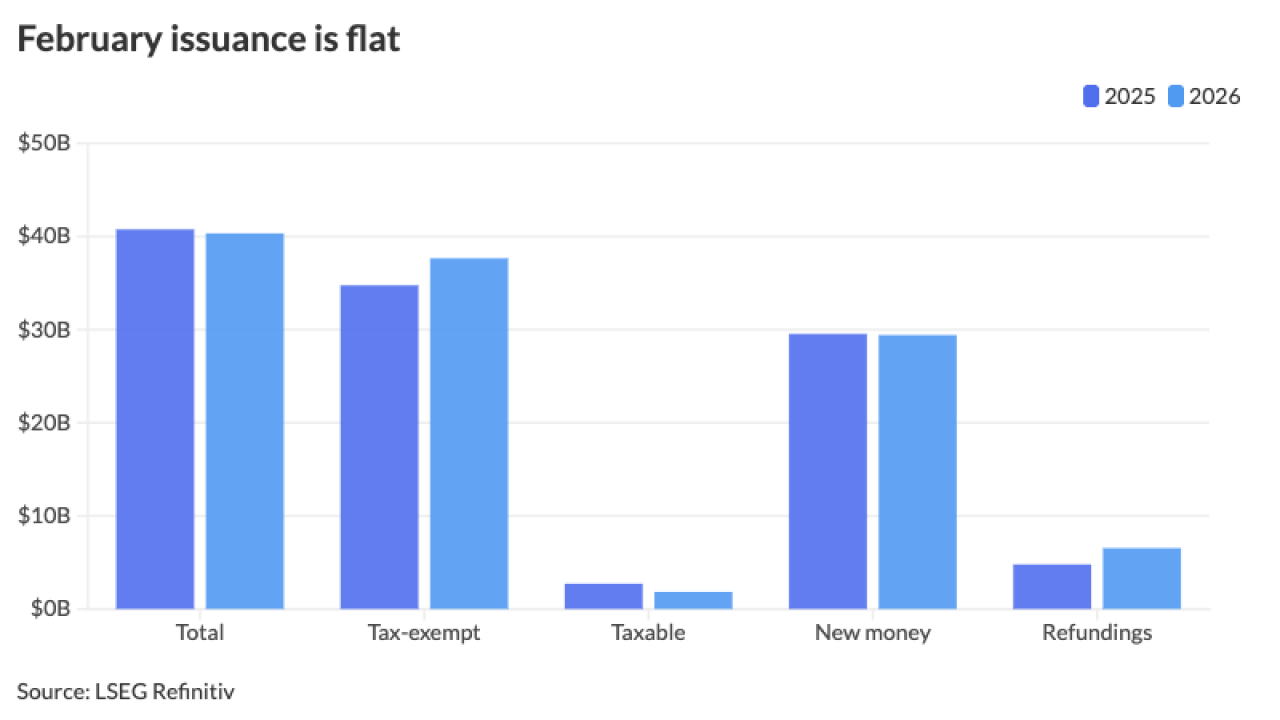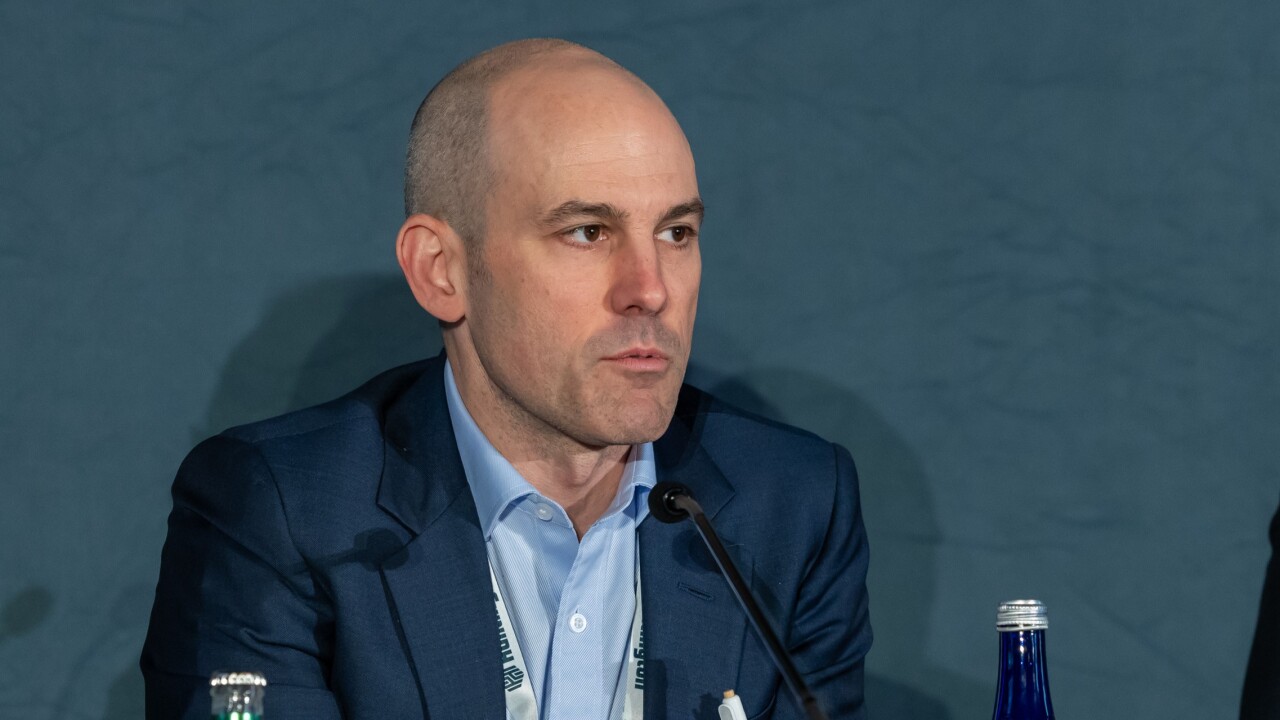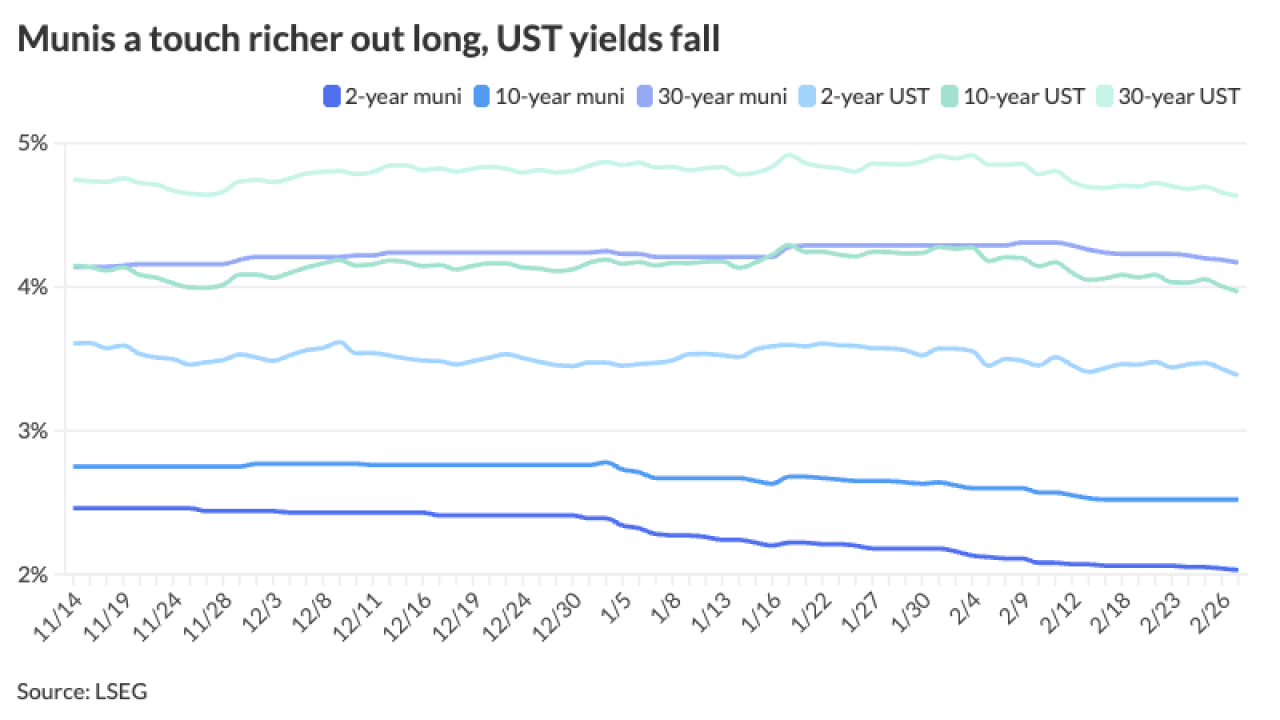DETROIT — The Municipal Securities Rulemaking Board’s executive director on Friday tried to allay some of the concerns nondealer financial advisers have about the regulatory burdens they may face under MSRB oversight.
Speaking at the annual conference of the National Association of Independent Public Finance Advisors, Lynnette Hotchkiss outlined the rules, recordkeeping requirements, and professional standards that the MSRB will likely mandate nondealer advisers adhere to as the board begins to regulate their industry.
But Hotchkiss stressed that the specifics remain up to the new, majority-public board that was seated Oct. 1 and will not formally meet to discuss policy issues for two more weeks.
While advisers grumbled that a NAIPFA member was not picked to serve on the new board, Hotchkiss said that representatives of neither the Government Finance Officers Association nor the National Association of State Treasurers were appointed to the board, either, and those groups were upset, too. If everyone is “angry,” Hotchkiss said, then perhaps the board is getting it right.
By the end of the year, the MSRB probably will establish a registration system for advisers to complement the one already in place at the Securities and Exchange Commission, she said.
It also will probably release proposals to apply its Rule G-17 on fair dealing to advisers and expand its Rule G-37 on political contributions to cover certain adviser contributions to political candidates.
Until recently, the board only regulated banks and broker-dealers.
However, on Oct. 1 it gained oversight of nondealer advisers under the Dodd-Frank Wall Street Reform and Consumer Protect Act. The board’s mission also was expanded to protect issuers as well as investors.
Stressing that not all of the MSRB’s dealer rules would apply to advisers, Hotchkiss said: “We can’t take our existing rulebook and plop it down on a different regulated entity.”
Hotchkiss did not directly answer a question on MSRB transparency, about whether it would consider releasing board meeting agendas and minutes.
The board, she said, is not subject to freedom of information laws like states or local governments and historically its members have been concerned about releasing the details of its deliberations.
For instance, a board member may be reluctant to take a position that is in the best interest of the market but adverse to his or her firm if they know the discussions will ultimately be made public, Hotchkiss said.
In addition, some issues are sensitive and could affect trading of specific securities, she warned.
Once the board decides a controversial issue, market participants could retaliate against MSRB members known to have voted in favor of it.
But she said the board typically previews the meeting topics with The Bond Buyer and holds conference calls with reporters immediately after each meeting to discuss what happened.
As the MSRB begins to regulate advisers, it will quickly form an advisory panel consisting of adviser firms to bounce ideas off board staff, she stressed.
The board will subsequently establish advisory panels of dealers, issuers, and investors, she said, and plans outreach events for all industry participants later this year in Chicago and New York.
Hotchkiss said the board is starting to work on professional qualifications, continuing education requirements, and testing for advisers, as required by the Dodd-Frank Wall law, but suggested this may be a drawn-out process.
For instance, she said it may take up to two years for the board to come up with tests specific to advisers.
While she predicted that all advisers will likely have to take the same exam, there might be special “modules” for those that specialize in particular areas, such as swaps or if they work as placement agents for pension funds, she said.
Hotchkiss noted that some advisers have asked MSRB staff if the board could declare them exempt from testing if they have previously completed other examinations like the Series 7 for general securities representatives, or if they can be grandfathered in if they can demonstrate that know what they are doing.
“I don’t know the answer to that,” she said, noting that there are instances where licensed individuals in one professional area can be waived into another.
She referenced a common practice among some state bars of accepting attorneys who have passed the bar exam in other states.
In a move intended to address some NAIPFA member concerns about MSRB regulations, she acknowledged that the board must ensure each requirement does not unduly burden small advisers.
Hotchkiss said small advisers should not anticipate exemptions from MSRB rules, but that the board may consider delaying implementation of certain requirements for smaller firms.
She noted that is what the Governmental Accounting Standards Board has done for some of its new accounting standards.
Hotchkiss stressed that while none of the existing dealer rules apply to advisers, Dodd-Frank mandates that advisers adhere to a “fiduciary duty” for their clients beginning Oct. 1, even though the board has not yet had a chance to elaborate on what such a duty entails.
Asked what other sorts of requirements dealers would likely face, Hotchkiss said the MSRB probably would impose recordkeeping requirements on advisers to correspond with the forthcoming rules that will apply to them.
“From a regulatory perspective, there probably should be a baseline amount of information so that if you’re audited, there is something to audit,” she said.
She noted that many of the board’s existing dealer rules already require them to preserve records for auditing purposes.
Hotchkiss acknowledged that it may be “tricky” to maintain records to demonstrate advisers dealt fairly with their clients.
However, she said it would likely be a matter of preserving reports advisers already are producing than requiring them to create new ones.
Additionally, she said that advisers likely will have to file quarterly reports to the MSRB on their political contributions, similar to the Form G-37 that dealer firms must file.





